Olive oil is getting more expensive — and these Italian farmers can tell you why
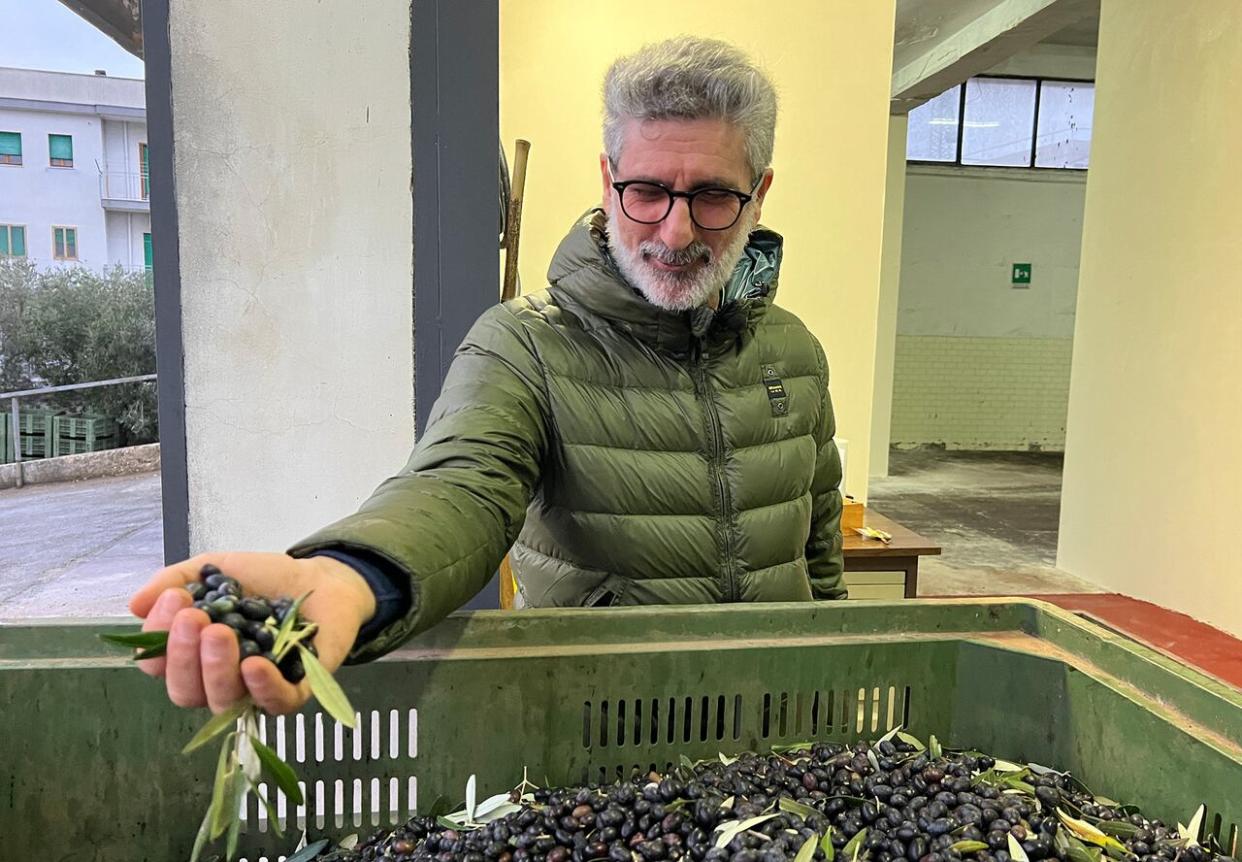
On a warm, blustery December afternoon outside the De Laurentis olive oil-producing co-op in the white hilltop town of Ostuni, Puglia, Luigi D'Amico holds out his palm, revealing an olive picked earlier in the day.
Instead of resembling the plump, gleaming green and black fruit overflowing in bins around him, this one is half-consumed, dry and shrunken.
"That's what the olive fly does," he explained. "It lays its larvae, which then devours the olive."
D'Amico lists off other pests and fungi — olive leprosy, peacock's eye fungus, the Margaronia moth — all spreading, he says, with the aid of the warm scirocco wind that didn't use to blow here in December, but with climate change, now does.
"We need cold weather to kill off pests," he said. "And temperatures are rising."
Italian olive tree growers aren't the only ones facing challenges. Spain, which produces about 40 per cent of the world's olive oil, has had a drought for two years, and along with Greece is facing wildfires, floods and warmer winters.
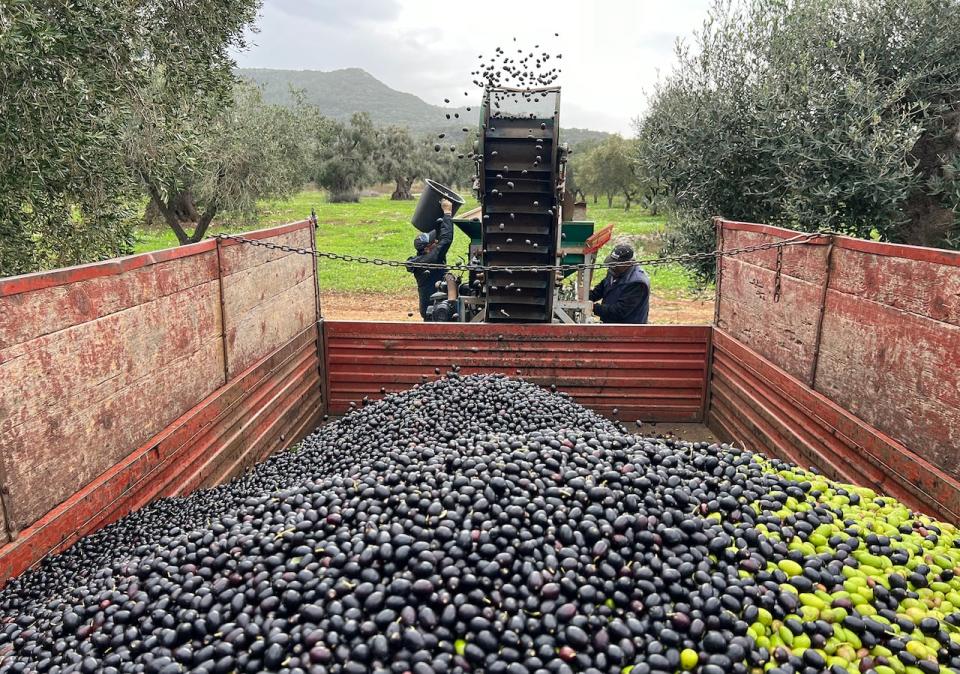
Puglia is responsible for nearly half of Italy’s olive oil and almost 15 per cent of worldwide production. (Megan Williams/CBC)
These factors have pushed up the average price of olive oil in Canada from $7.75 two years ago to almost $13 now, according to Statistics Canada.
Puglia, the heel of Italy's boot, is responsible for nearly half of Italy's olive oil and almost 15 per cent of worldwide production, and global warming has put it at particular risk.
Fighting conspiracies
Along with climate change, its olive trees are being devastated by a bacteria known as Xylella fastidiosa — or "bothersome" Xylella.
The bacteria arrived a decade ago in southern Puglia, likely in a coffee plant imported from Costa Rica, and quickly began its deadly spread up the boot.
A populist regional government, under public pressure, chose denial over the advice of scientists to immediately eradicate infected trees to halt the bacteria's spread. Instead, politicians lent credence to conspiracy theorists who spread fake news — like that the directives to chop down infected trees were the plot of enemies of Italy's olive oil industry. Precious time was lost.
A short drive away along the Adriatic coast brings us to the land of ulivi monumentali — centuries-old olive trees the size of dinosaurs.
Luigi D'Amico walks through his family grove, stopping to admire a massive trunk, carved by time into a majestic sculpture.
"Each and every olive tree here has its own history," he said. "You can look at the trunk and see everything it's been through — all the diseases and more."
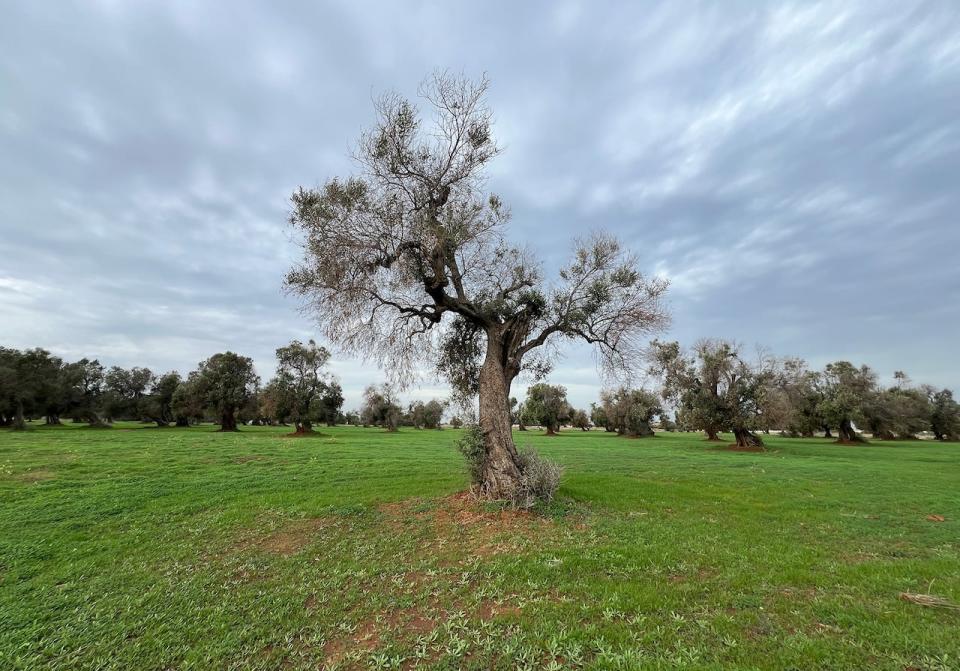
Many olive trees in Puglia are being devastated by a bacteria known as Xylella fastidiosa — or 'bothersome' Xylella. (Megan Williams/CBC)
Xylella, though, will never be read on a trunk hundreds of years from now.
D'Amico reaches up and snaps off a brown branch — the telltale sign that the tree is infected.
"It started with our neighbour's trees that showed signs of Xylella," he said. "But we lost precious time because we couldn't find the owners at first, who moved years ago. Then the regional authorities were slow to move, and by the time they did, the bacteria had crossed over to my grove."
The first infected trees are now gone; in their place is a small grassy patch where they once stood. Each and every tree in D'Amico's grove now has brown patches and will be dead in five years or so.
'It's like losing a family member'
D'Amico says he's slowly mourning the approaching death of his trees, the loss of which isn't just economic, but a blow to his and Puglia's identity.
"With the death of each tree, it's like losing a family member or a close friend," he said.
In another ancient olive grow further inland, harvester Vincenzo Zaccaria attaches a huge mechanical arm to a massive tree that starts to shake it, triggering a downpour of bright green corratino olives into a net stretched out below. Fellow harvesters whack the upper branches with long poles.
This year, Zaccaria's trees are bursting with olives. A nearly four-month drought meant high irrigation costs for producers, but it helped kill off some pests.
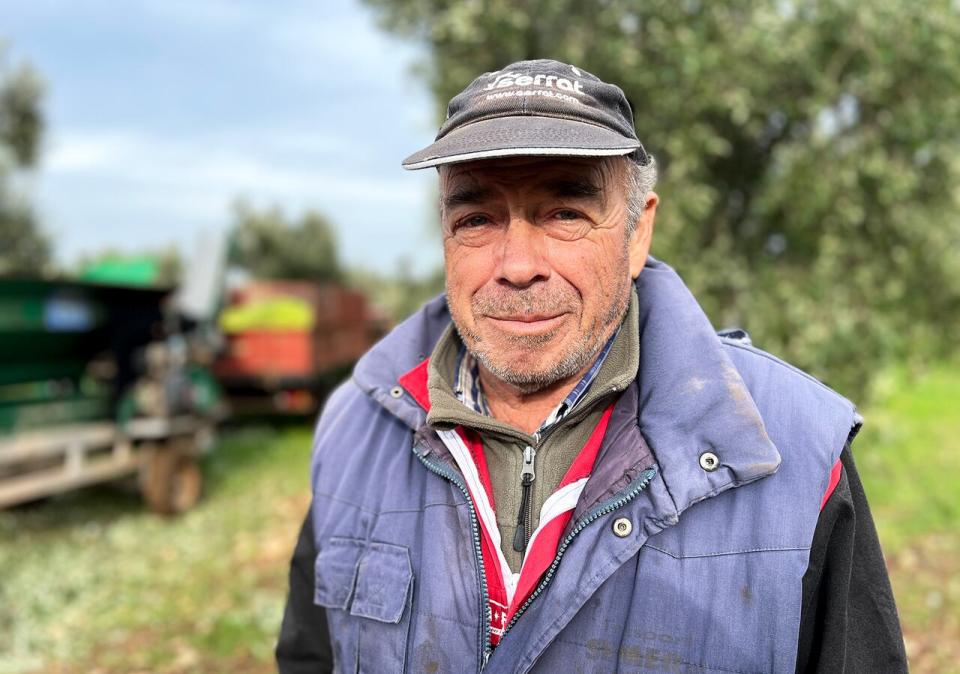
Vincenzo Zaccaria has been harvesting olives in Puglia for 35 years, and says that seeing olive trees dying 'brings tears to my eyes.' (Megan Williams/CBC)
In parts of Puglia this fall, gangs stole equipment and entire olive harvests at night, prompting some growers to request police escorts while taking their harvest to the olive press.
Still, just like in Luigi D'Amico's olive orchard, almost every tree in Zaccaria's grove has brown patches.
"These monumental trees are like gold," said Zaccaria, who's been harvesting olives in Puglia for 35 years. "And to see them dying like this brings tears to my eyes. It's horrible, like watching a war sweep through our region and killing off everything."
Diversification plan
Puglia's failure to act 10 years ago has reduced the region's olive oil production by as much as 50 per cent, says Giannicola D'Amico, the regional vice-president of the country's farming association, CIA-Agricoltori Italiani.
"Thousands of agriculture businesses have lost everything and shut down," he said.
A 2019 regeneration plan from the Italian government worth roughly $450 million Cdn to help pay for replanting lost trees has been slow to arrive and covers just a fraction of the overall loss, he said.
CIA-Agricoltori Italiani says some $3 billion is needed to fully restore the affected areas, and wants that money to come from the EU, which the farming association says bears some responsibility, because when Xylella arrived in Italy, it was also crossing EU borders.
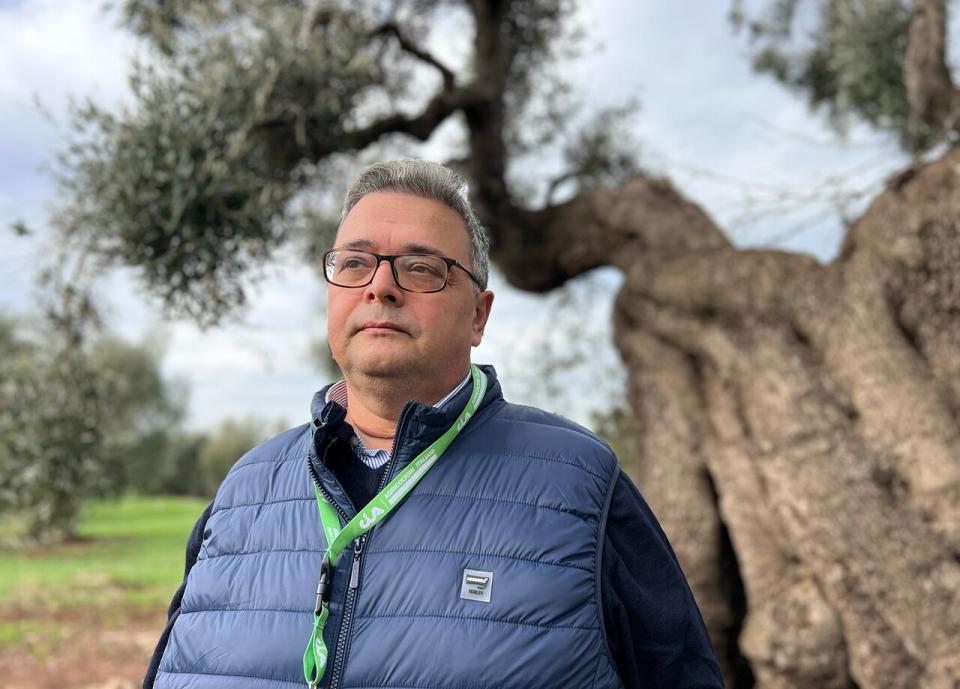
Puglia's failure to act 10 years ago has reduced the region's olive oil production by as much as 50 per cent, says Giannicola D’Amico, the regional vice-president of the country’s farming association, CIA-Agricoltori Italiani. (Megan Williams/CBC)
While consumers are unhappy with the resulting high price of olive oil, producers say it's more than fair.
"We just hope the prices stay high so producers are paid more than enough just to get by," Giannicola D'Amico said.
In the meantime, he and growers in Puglia want more money invested in research to try to find a solution to Xylella, as well as initiatives to restore the land, introduce more disease-resistant olive trees and other kinds of agriculture — which would move the region away from a monocrop system to a more diversified economy, with pomegranate, figs and Xylella-resistant varieties of almond and cherry trees.
To help slow the spread of Xylella, growers are now following the Scortichini protocol, which involves spraying the trees with a zinc-copper-citric acid solution to reduce weeds under the trees where eggs are laid.
But it won't save Puglia's monumental olive trees.
"We hoped because we were following responsible agricultural practices, they might survive," said Luigi D'Amico.
"But to have all your effort come to nothing has been a defeat — as a producer, as a man, as someone who loves these magnificent trees."

